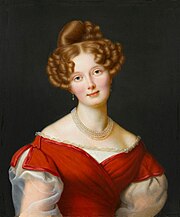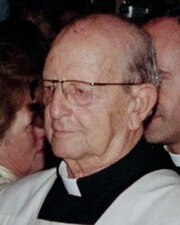Design
Design
Personality
Chart Properties
Your Cross represents the specific theme of your life. This cross embodies your unique potential & the lessons you're here to learn, providing a roadmap to fulfilling your life purpose.
We use the UTC birth time and date to do the calculations required to generate your Human Design chart.
Buy Tokens
Pay as you use, no expiry and no subscription required.Père Joseph Maréchal's Biography
Belgian Jesuit priest, philosopher, theologian and psychologist.
His father taught mathematics.
Maréchal joined the Jesuits in 1895 and after a doctorate in biology at Leuven (1905) he first specialized in experimental psychology, spending some time in Munich with Wilhelm Wundt (1911). Until the end of his life Maréchal would say that his real interest was more in psychology than in philosophy.
Under the influence of the encycliek AEterni Patris (4 Aug. 1879) of Pope Leo XIII, who wished to to revitalize the theology of St. Thomas Aquinas (Thomism), he started studying in depth the works of Aquinas, along with the works of other scholastic thinkers, comparing them to modern philosophers and scientists like Henri Poincaré and Henri Bergson. From this, and in particular from Kant’s transcendental idealism, emerged a new and more dynamic Thomism, recapturing the union of “act and power” in Aquinas.
Between 1924 and 1937 he wrote “Etudes sur la psychologie des mystiques” (Studies in the Psychology of the Mystics), writing about mystical experiences in all cultures.
He recognised three stages in Christian mysticism: (1) the gradual integration of the ego under the mastery of the idea of a personal God according to a program of prayer and asceticism, (2) a transcendent revelation of God to the soul experienced as ecstatic contact or union, frequently with a suspension of the senses, and (3) a kind of readjustment of the soul’s faculties by which it regains contact with creatures “under the immediate and perceptible influence of God present and acting in the soul” . This final stage, must prevent that mysticism and asceticism result in a selfish flight from the world and an avoidance of moral responsibility.
Until his death on 11 December 1944 he taught philosophy and experimental psychology at the Jesuit House of Studies in Leuven.
The work of Maréchal had a great influence on such contemporary theologians and philosophers as Andre Marc, Gaston Isaye, Joseph de Finance, Karl Rahner, Bernard Lonergan, Johannes Baptist Lotz, Bernard O’Brien and Richard De Smet.
Link to Wikipedia
Père Joseph Maréchal
Your Cross represents the specific theme of your life. This cross embodies your unique potential & the lessons you're here to learn, providing a roadmap to fulfilling your life purpose.
We use the UTC birth time and date to do the calculations required to generate your Human Design chart.
Prompt Ideas
Get inspired with some epic prompt ideas.Thomas Fersen
5/1 Emotional - Solar Plexus GeneratorTonton David (singer)
4/6 Emotional - Solar Plexus Generator

Princess of Württemberg Pauline
1/3 Emotional - Solar Plexus Projector

Xiao
4/6 Sacral GeneratorWolfgang Fortner
3/5 Emotional - Solar Plexus Manifesting Generator





